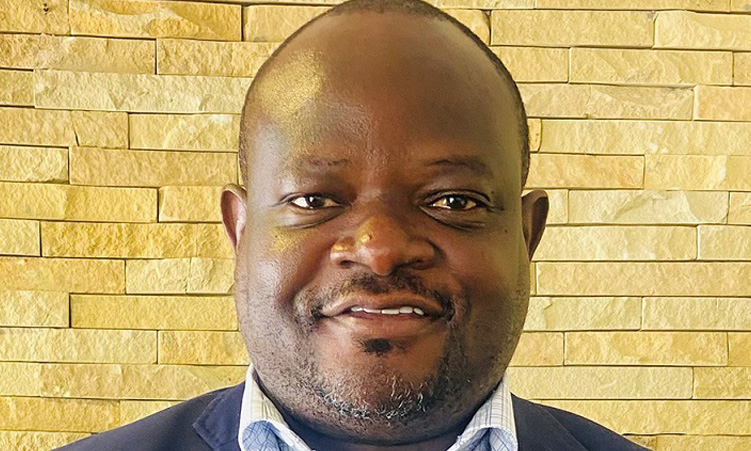Member of parliament Nico Smit has called for transparency by the Central Procurement Board of Namibia (CPBN).
This comes after the board failed to disclose the exact amounts allocated to companies which won N$1,4 billion worth of health tenders two weeks ago.
The pharmaceutical supply tenders, including vaccines and other medicines, were advertised in November last year and awarded on 24 April this year.
The board awarded these tenders to NamPharm, Erongomed Health Distributors, WAP Pharmacare, trading as WAP Medical Supplies, Supremo Pharmaceuticals, Mozart Medical Supplies CC, Broad
Pharma, GenMed, Econo Investments, Element Medical Suppliers, Afripharm Investments, and Ciron Drugs and Pharmaceuticals.
INFORMATION EXCLUDED
However, unlike previous awards that included the price per beneficiary company, this one only provided information on quantities and unit prices.
The latest tenders appear to be dominated by the same faction of medical contract beneficiaries which won big in January.
Sources believe this was deliberately done to avoid public scrutiny and the detection of cronyism in the awarding of tenders.
Smit, a Popular Democratic Movement parliamentarian, yesterday said disclosing figures helps to build public and stakeholder trust in the procurement system.
He said: “This obligation is stipulated in the Public Procurement Act of 2015, which requires that the CPBN provides a detailed report of the procurement process, including the name of the company awarded the tender, and the exact amount awarded.”
Smit said the CPBN is mandated to ensure transparency and accountability in the procurement process and is explicitly required by law to disclose the exact amounts tenders awarded to companies are worth.
He said the board is mandated to ensure that the procurement process is conducted fairly and transparently, and in a manner that promotes competition, efficiency and value for money.
“By making procurement information publicly available, citizens and other stakeholders can hold government officials accountable for their procurement decisions and ensure that public funds are being used responsiby.
“In the absence of the exact figures, the CPBN is in fact robbing the citizenry of their ability to do so,” he said.
CALLS FOR INVESTIGATION
Smith has pushed for an investigation into the operations of the board, which has been widely criticised for favouring a clique of individuals and their relatives connected to power.
The lack of transparency has raised concerns with the Institute of Public Policy Research (IPPR).
IPPR researcher Frederico Links questions why the tender values per company were not indicated, as was the case with the clinical medical supply tender.
“They are trying to be clever with transparency. Why not just be open about everything, and dispel all controversies and all clouds of suspicion by just doing things the way the law sets it out?” he asks.
He advises the CPBN to adopt a similar approach to the one used for the earlier clinical supply tender to address these concerns.
The tenders were signed off by CPBN acting chairperson Amon Ngavetene.
‘RATE-BASED’
According to Immanuel Kambinda, the CPBN’s acting executive of public procurement, the procurement process for pharmaceutical products was rate-based.
Bidders were required to offer unit rates for each item and bids were evaluated for each item, with the contract comprising the items awarded to the successful bidder.
Kambinda said: “The Ministry of Health and Social Services will purchase items on the unit rates offered by the bidders within the amount provided for on the financial certificate by the ministry and based on consumption.
“The purchaser reserves the right to increase or decrease the quantity of goods originally specified, depending on the demand for the products.”
The notified selected bidders had until Tuesday this week to accept the award, object, or ask for re-evaluation.
The notice did, however, not indicate the price values of the tenders to be awarded – only the unit prices.
‘NO NEED FOR MORE TRANSPARENCY’
Political analyst Ndumba Kamwanyah says the CPBN’s move is contrary to the principle of open governance and transparency.
“It is important for public institutions like the CPBN that they be seen to be transparent and open. This is because this institution is very important for Namibia and critical to the development of Namibia, because it allocates national resources,” he said.
CPBN spokesperson Johanna Kambala says the process is transparent, and there is no need for additional transparency measures.
She says the bidders were aware that they would be awarded based on the rate they proposed, and not on a fixed amount.
The awarded amount depends on the demands and needs of the health ministry, Kambala says.
“If 10 companies are recommended, it does not mean they are guaranteed that the ministry will order from them.
“The possibility that a quarter will pass without the ministry ordering from them is there. It is on the demand-and-needs basis of the ministry,” she says.
Kambala says unit prices are equal to what companies would charge the ministry for the two years they would be contracted.
Sources have in the past complained that the tender board system is “contaminated”.
Stay informed with The Namibian – your source for credible journalism. Get in-depth reporting and opinions for
only N$85 a month. Invest in journalism, invest in democracy –
Subscribe Now!






